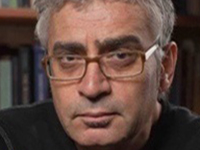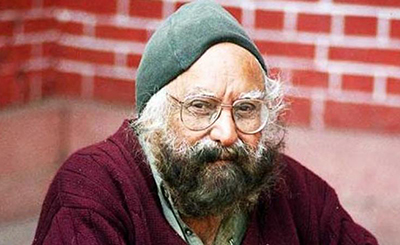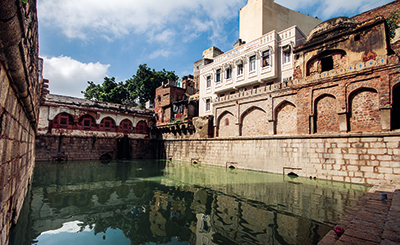
This poem is part of our world poetry special issue, with the focus on Turkey, curated by Ceyda Elgül, an instructor of translation at the Department of Translation and Interpreting Studies in Istanbul’s BoÄŸaziçi University
Editor’s Note: “No man is an island entire of itself/every man is a piece of the continent, a part of the main...” wrote John Donne, whose death anniversary falls on March 31. However, amid the shared threat of a global pandemic, as we practise social distancing and seek refuge in the self, we may see ourselves as islands unto ourselves, rafting along the sea of life. As reports of people dying of coronavirus around the world come in, all of us at The Punch Magazine feel diminished as we are “involved in mankind”.
COVID-19 destroys lives, but as human race, we have always created what is greater than us — literature. It’s a dark and difficult period in the march of human civilisation. But this is also the time that will produce the best of literature. “What one writer can make in the solitude of one room is something no power can easily destroy,” Salman Rushdie once said. Poets and writers throughout history have always shaped the world, and stopped it from “going to sleep”. Someday, when all this is over, the world may not be the same, and we may have lost millions of our loved ones to the contagion, but, by then, poets and writers who are witness to this moment in history will have created life-affirming literature that will outlive us. We do hope that this phase proves to be just a “short sleep” and that we may soon “wake eternally” and emerge into the light — stronger and well-healed.
Caretaker Of Ghosts by Turkish-Cypriot poet Mehmet Yaşın (translated by BaÅŸak Ergil) is part of our world poetry special issue, with a focus on Turkey, curated by Ceyda Elgül, an instructor of translation at Department of Translation and Interpreting Studies (DTIS), BoÄŸaziçi University in Bebek (Istanbul). It presents a selection of poems translated during a workshop in Turkey last year.
Curator’s Note: Poetry is generally associated with untranslatability. Poets are assumed to deconstruct and refashion the language, which eventually puts it in a state that cannot be replicated in another language. This portrayal would seemingly suggest that poems are “islands” that have no contact with “other shores”.
In July 2019, a group of professional poets, translators, and scholars from different linguistic and cultural backgrounds gathered at Büyükada, the largest of the nine “Princes’ Islands” in the Sea of Marmara, near Istanbul, to start a series of poetry translation workshops entitled “Island in Translation”. The gathering aimed to celebrate poetry translation as collaborative-creative production. A selection of island poets and/or poems with island themes was translated. The poets and the poems came from the Princes’ Islands (Istanbul), Cyprus, the Caribbean, and the Isle of Man. During the two-day workshop, the gathering delved into island literature from the viewpoint of translation and proposed corresponding images for island-poems in other languages, including English, Turkish, Korean, Kurdish, and Japanese. Metaphorically speaking, the group explored how “island-poems” and “other-shores” could be brought together.
Besides Caretaker Of Ghosts by Yaşın, other translations include poems by late Caribbean poet, playwright and theatre director Derek Walcott (translated by Özlem Berk Albachten); Turkish poet-essayist-novelist Enis Batur (translated by Saliha Paker); Sait Faik Abasıyanık, one of the major short story writers in Turkish literature in the 20th century (translated by Åžehnaz Tahir GürçaÄŸlar and Ä°ldar Gün GürçaÄŸlar); Isle of Man-based English teacher Usha Kishore (translated by Seyhan Bozkurt Jobanputra and Rakesh Jobanputra); Özdemir Asaf, an eminent figure of contemporary Turkish Literature (translated by Seyhan Bozkurt Jobanputra and Rakesh Jobanputra); Turkish writer-stage director-theatre critic Melisa Gürpınar (translated by Ceyda Elgül); American poet Mel Kenne (translated by Mark David Wyers, Ä°dil KaracadaÄŸ and Gökçenur Ç.), another Turkish poet Haydar Ergülen (translated by Mark David Wyers and Ä°dil KaracadaÄŸ); Turkish poet-actor-visual artist Erkut Tokman (translated by Mark David Wyers and Ceyda Elgül); Turkish poet Muzaffer Tayyip Uslu (translated by Muazzez Uslu); and Turkish poets Efe Duyan, Nihat Özdal and ÇaÄŸla Meknuze (translated by Gökçenur Ç.). In respect of the long tradition of poetry translation, the translations are presented along with the source poems so as to enable parallel reading.
Caretaker Of Ghosts
People think ghosts do not need belongings.
They pass through walls as if afloat
and once you remember them, they appear.
In your unguarded moments,
they won’t run away even if you scare them.
Isolated corners of your memory
is where a ghost’s bed-room is meant to be.
“It’s all the same whether I’m there,” you say “or here,
what would it matter for a ghost
as long as I carry him within.”
But ghosts do not like to be carried,
and yet that isn’t as easy as it may seem.
For one thing, travel triggers panic-attacks,
and ghosts too have traumas, fear of abandonment,
breakup syndrome, and whatnot.
A ghost could possibly say:
“Who will look at my photo on the mirror if he leaves too,
who will dust me,
and when I’m back home, will the pots and pans I always use,
be where they are supposed to be?”
It takes enormous care
to deal with belongings that have lost their function
since they now belong only to ghosts.
It is best to have an eye for the worries of the other,
and, awkward as it may seem, to mind their needs.
If you want to walk on your own path
you should be a tender caretaker of ghosts
and most of all, keep a good eye
on the ghost of your childhood.
Nicosia, 2009
Hayalet Bakicisi
Sanılır ki eşyaya gerek duymaz hayaletler.
Duvardan geçerler uçarcasına
ve hatırlanmaları yeter salınmak için ortalıkta.
Hele boş buldular mı seni bir
kaçmazlar kovsan da.
Onların yatak-odasıdır kuytu köÅŸeleri belleÄŸin.
“Ha oradaymışım” dersin “Ha burada,
ne fark eder ki bir hayalet için
ben onu kendimle beraber taşıdıktan sonra.”
Ama taşınmayı sevmez hayaletler
ve öyle sanıldığı kadar basit deÄŸil bu iÅŸler.
Yolculuk panik-atak yaratır bir defa
onların da travmaları var, bırakılmak korkusu,
ayrılık sendromu, vesaire.
Åžöyle düÅŸünüyor olabilir bir hayalet:
“O da giderse kim bakacak fotoÄŸrafıma aynadan,
kim alacak tozumu,
kullanmaya alıştığım tabak çanak
yerinde bulanacak mı bakalım geri geldiÄŸimde?”
Fazlasıyla özen ister
iÅŸlevini yitirmiÅŸ eski eÅŸyalar
artık sadece hayaletlere ait olduklarından.
En iyisi başkasının endişesine kulak vermek
tuhafına gitse de, gözetmek
ötekinin ihtiyacını da.
Kendi yolunda yürüyebilmek istiyorsa
iyi bir hayalet bakıcısı olmalı insan
ve çocukluk hayaletine göz kulak olmalı en çok da.
LefkoÅŸa, 2009
More from The Byword
Comments
*Comments will be moderated












